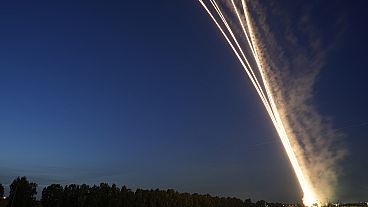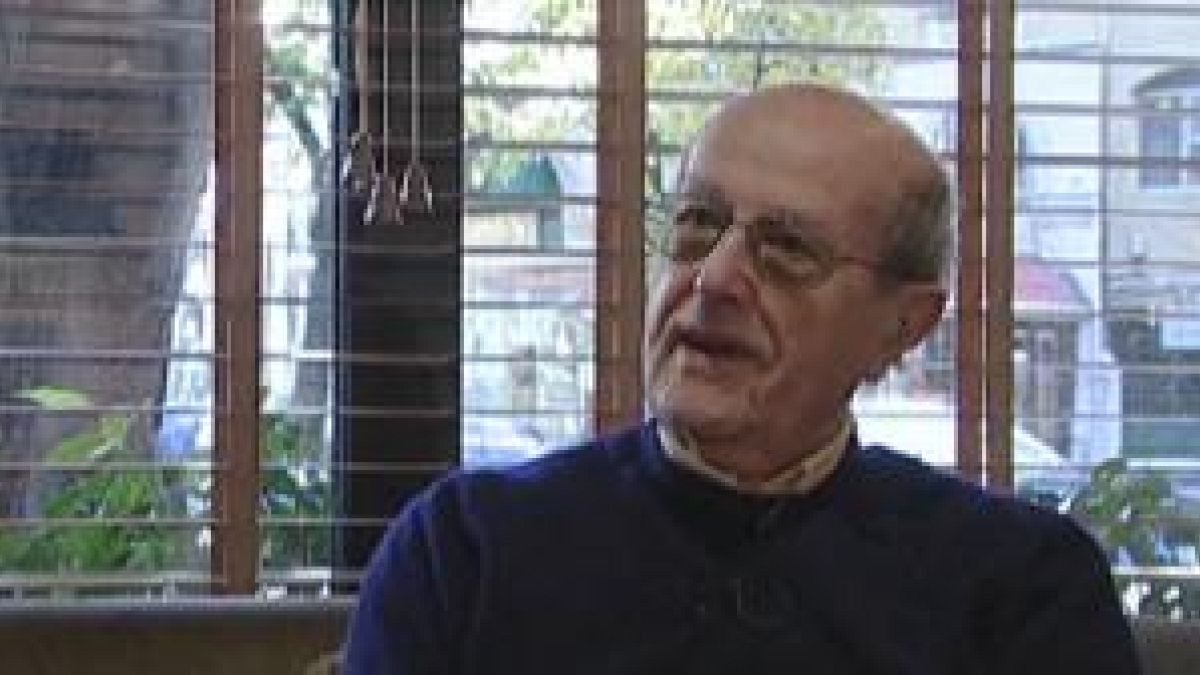Born into a wealthy middle-class family 100 years ago, Manoel de Oliveira’s ambition was always to be an actor. But the arrival of the movies changed his mind, and he moved behind the camera, making his debut as a director in 1931. It is almost true to say he has barely had a day off since.
Euronews: Manoel de Oliveira, over the last two decades you have made at least one film per year. What keeps you going?
De Oliveira: There is no secret – it is work! It is doing something, it is a natural impulsion. My life is so complicated – I need space around me, I have so much going on and my house is small, and I need breathing space. I cannot seem to sort it out. I cannot either stretch time, or enlarge the house. That would take up precious time which I cannot afford.
Euronews: And how do you see cinema?
De Oliveira: Cinema is a mirror of life. I believe that it is not one simple mirror, there is no other! Film-making is the only reflection of life. And, as well as being a reflection of life, it is also a record of life.
Euronews: What do you see as the most important events of the 20th century?
De Oliveira: For me it has to be the 25th April 1974, and the end of the military dictatorship in Portugal. It was an extraordinary moment. The people who acted on that day did not want to take power, they simply wanted to give power back to the people. That was a rare moment, perhaps unique in our time. After that date, there was socialism in France, then socialism in Spain, and then the Berlin Wall fell, and the way was open to a new world. But then we have had Kosovo, terrorism and many awful things, culminating now in the world financial crisis and the failure of the banks. It is a problem for us all, for the global community. It is a major problem, but I believe we have the power to deal with it – I hope so.
Euronews: What do you think will happen?
De Oliveira: Standing still is to die; that is the point. The worst thing would be to do nothing, to be scared of acting. The fact is that the people who tried to get their money out only aggravated the situation. But, that is life. Now, it would be a mistake to stand still, to not try something.
Euronews: How do you see the future of Europe?
De Oliveira: Europe is swamped by myths, both historic and religious: There is the belief that democracy is the most important thing. People push democracy forward at the expense of religion. The EU has one goal: one single king and one single pope, and that can be generalised as Brussels at the centre of things. I think that is extraordinary, but it is not too difficult to imagine. But, there are competing winds blowing through the regions, idiosyncrasies, languages, traditions. The goal is going to be difficult: to arrive at a solution acceptable to all.
Euronews: What do you see as the most important problems facing society today?
De Oliveira: There are many: television only shows porn and violence against children. Mothers have to work and so cannot be at home for their children, who just sit in front of the television. We have lost our values.
Euronews: Many accept that cinema and culture should not be funded by the state. What do you say to that?
De Oliveira: If I make a film, I work with a whole range of people: I use many actors, many specialists. I employ many small companies, and we all pay tax. Even if the film gets a state grant, I am never sure if that grant is bigger or smaller than the money we pay in taxes. The state always wins. But I work in a whole range of fields – that is what is interesting. If you stop, you die; if you keep going, you live.
Euronews: What do you think are the most important things in life?
De Oliveira: Knowing how to do things properly. Education is the most important thing. From the government’s point of view, the most important thing must be health. A sick country is nothing. But in second place must be education, and then there is art and culture, which go hand in hand with education. Knowledge is the very essence of humanity, and without that we cannot progress. After that, well, there is everything else…
Euronews: Manoel de Oliveira, thank you.
De Oliveira: Thank you


